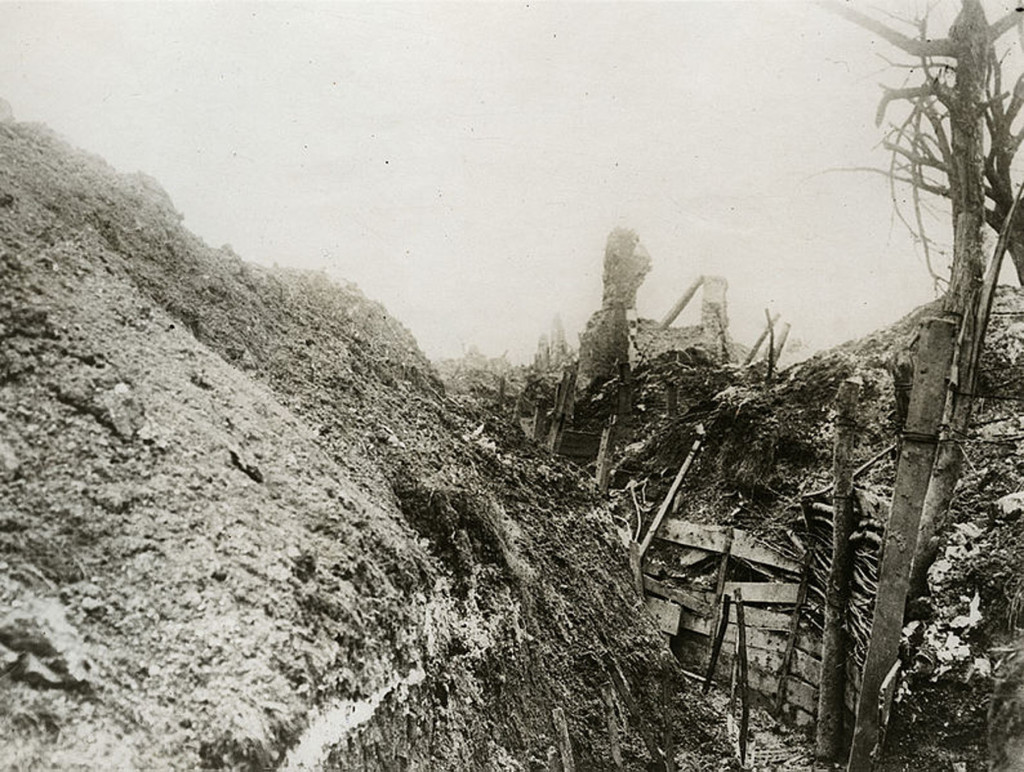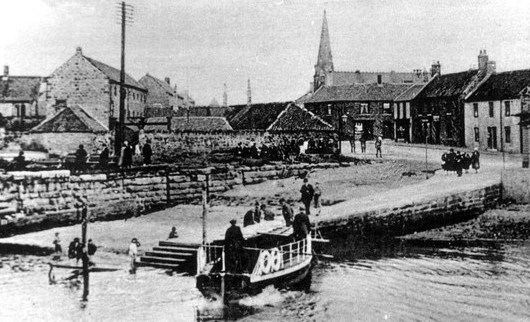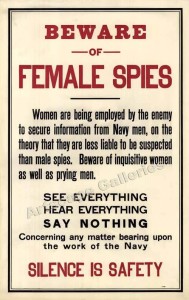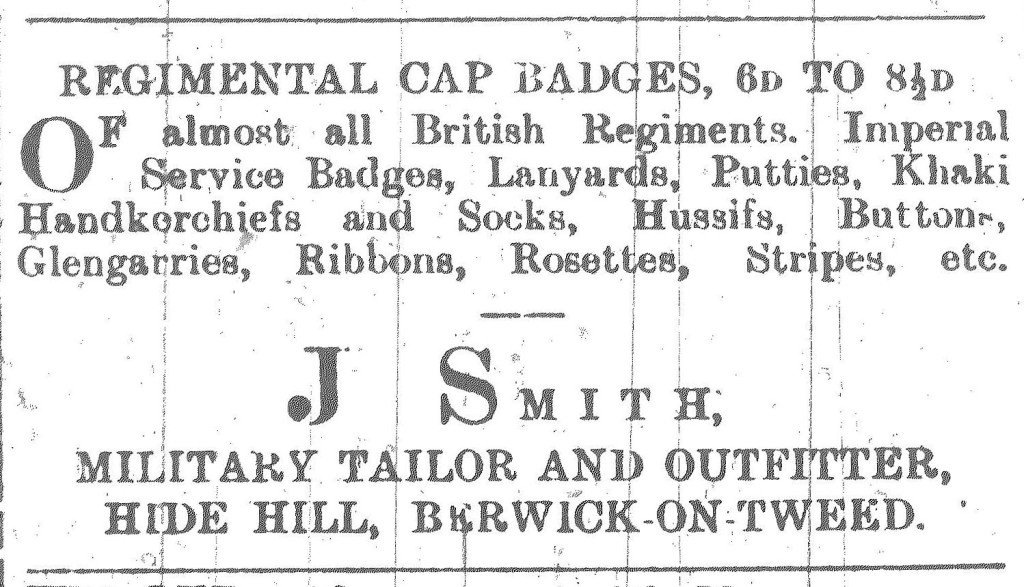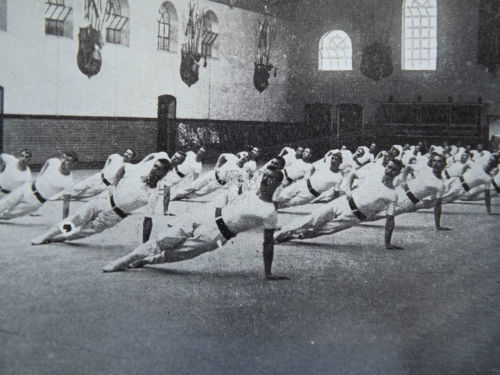BERWICK ADVERTISER, 20 AUGUST 1915
PECULIAR CAPTURE OF A ROACH IN THE TWEED
A correspondent, writing in the “Northern Echo” on the paragraph which recently appeared in our columns regarding a roach jumping out of the river into a salmon fisher’s cobble near Horncliffe House, points out- The spot where the roach was thus “caught” unawares is quite an ideal one for that fish. The waters are still and deep, with an abundance of weeds, trees and bushes on the edge of the river. The tidal water will contain very little, if any, salt in it at Horncliffe,as the Tweed does not flow much above there, and it may only be a little brackish at the top of the tide, and will soon run out when the tide sets in. Besides, the writer has had some of his best creels of yellow freshwater trout at
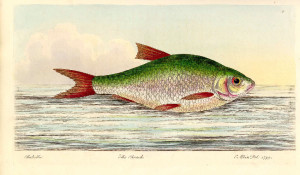
Horncliffe, and a mile below at the Union Chain Suspension Bridge at Scotch New Water Ford. Free trout fishing may be indulged in on the Tweed as far as two miles below the Chain Bridge at West Ord ford. So if trout can live so far down in the tidal waters why not roach. Indeed, I have seen large yellow trout caught in the nets as far down as Berwick Bridge, about a mile from the sea. Large numbers of roach have been netted in recent years at Twizel, near the mouth of the Till, where it enters the Tweed. The roach is a poor mean fish so far as eating goes, but he is handsome and strong, also he will afford the angler capital sport when he rises at the fly which he commonly does about the months of August and September, both boldly and freely. Roach are very prolific. In the ovarium of an ordinary sized roach were counted no less than 25,000 eggs. Fishery Boards are waging a strong crusade against the roach, for wherever they take up their abode trout fishing suffers and the streams are depleted to an alarming extent. Therefore during the summer months, on the Tweed, thousands have been destroyed. The Tees also has been netted regularly during recent years by the water bailiffs for the destruction of roach, dace, chub, and many other useless “coarse” fish.
SCREMERSTON
SUNDAY SCHOOL EXCURSION
Though public excursions of pleasure seem generally out of place in face of the cares and anxieties of the time it is no less generally felt that where possible the usual arrangements for the pleasure of the little ones should be carried through. It was, therefore, resolved that the children attending the Scremerston Church Sunday School should have their usual summer trip, and this was held on Saturday last. A thunderstorm and heavy rain delayed the starting of the trip for three-quarters of an hour, during which time the children took shelter in the Church, but soon after a start was made the rain cleared off and for the rest of the day the weather conditions were all that could be desired. The party travelled in carts kindly lent by Messrs T. and J. Jobling, and the Scremerston Coal Company,

Stuart Meek – Creative Commons Attribution-Share Alike 2.0 Generic license.
to Goswick fishery kindly place at their disposal by Mr M.C. Robertson, who had also erected swings for the pleasure of the youngsters. Various games were indulged in until tea time when an abundant supply of cakes and tea formed an important feature in the afternoon’s proceedings. After tea a small memento of the occasion was presented to each child by two young ladies in national costumes, Miss E. M. Lightfoot, whose white dress was trimmed with red roses, and draped with a Union Jack representing England; while Miss A. M. Stokes wore the actual fete day costume of a French fisher girl. On the call of the Vicar, hearty cheers for the Allied Nations were raised by the interested children. Before starting for home Mr Thompson, who has for some years taken an active part in the work of the Sunday school, called upon the children to express in the usual way their thanks to the Vicar and Mrs Lightfoot for so successfully arranging and carrying through the day’s enjoyment, to the representatives of the Allied Nations for distributing the toys and otherwise assisting at the treat, to Mrs Thompson and Miss E. Mowitt for the preparation of the tea, and to Mr and Mrs Robertson for their permission to visit the Fishery and their general interest and help in the afternoon’s proceedings. A packet of sweets for consumption on the journey between Scremerston and Goswick was most kindly presented to each child by Mr and Mrs W.J. Blackett. After an afternoon of very general enjoyment the children reached home safely and happily a little after eight o’clock.
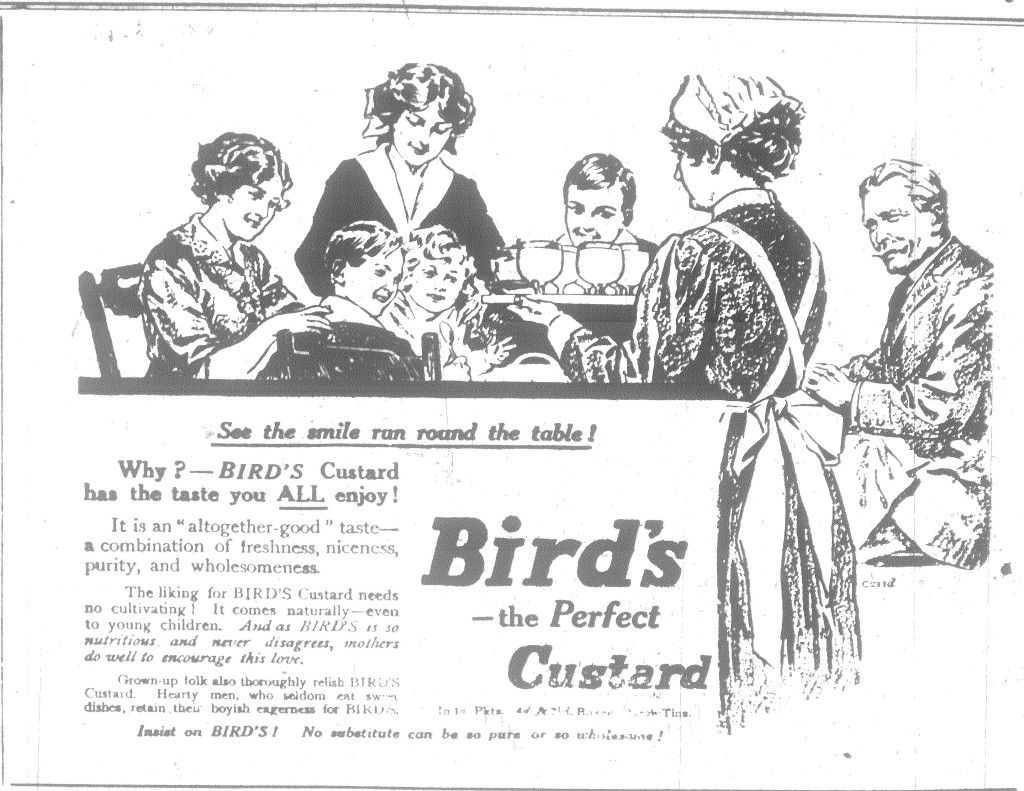
NATIONAL REGISTRATION IN BERWICK
Influx of Visitors Complicate Matters
The task of numbering the people in the Borough of Berwick under the National Registration Act was carried out on Sunday last, and already a considerable quantity of the forms have been duly collected by the band of ladies and gentlemen who so willingly devoted their services gratuitously to the task. It was expected that the whole of the papers in the Borough would be collected by Wednesday. The arrangements made under the superintendence of Mr James Gibson, acting Town Clerk, have worked smoothly and well. The enumerators in a number of cases had difficulties to overcome in securing a proper and intelligently filled up form, and in several instances had to lend personal assistance to obtain the various details. During the week-end, too, there was a large influx of visitors into the town, and this had the effect of complicating and rendering more arduous the duties of the enumerators. The second and no less important duty of classifying and arranging the details of the Register has yet to be undertaken, but already Mr Gibson has set about the bare preliminaries of this. The enumerators who have distributed and collected the forms will take part in the work, and Mr Gibson is waiting to see what other ladies and gentlemen will come forward to lend a hand in the duties. The forms have to be arranged into 46 occupational groups for males and 30 for females, while there are also nine age groups, each sub-divided, stating whether the lady is unmarried, married, or a widow.With the completion of the collections of the forms the first step will be to separate visitors from a distance who were resident in the Borough last Sunday, and dispatch the forms to the various districts where the visitors have their permanent residences. With the completion of the details each registered person receives a certificate certifying that he or she has been duly registered, along with their code number. Special buff forms have to be filled up for those males or females who are skilled workers. These are retained until instructions are received as to how they are to be dealt with. A pink coloured form has also to be prepared of those males whose ages are from 18 to 40, and have not completed their 41st birthday, these being for the special use of recruiting authorities.
Mr Gibson will deal with the preliminary work in the Town Clerk’s Office, but when the more strenuous and important part comes to be undertaken he will have his staff accommodated in the ante room at the entrance to the Town hall, where more adequate room will be found. The Registrar General expresses the hope that the whole of the details will be completed by Saturday, 4th September.


